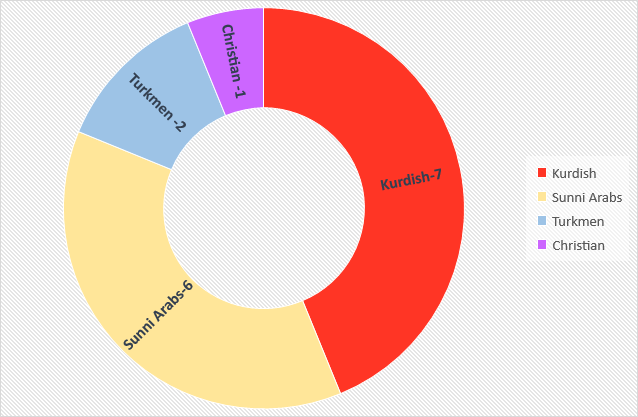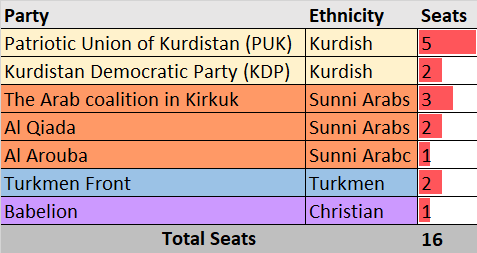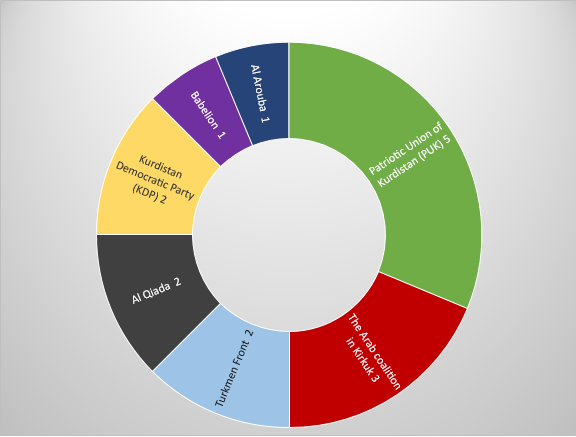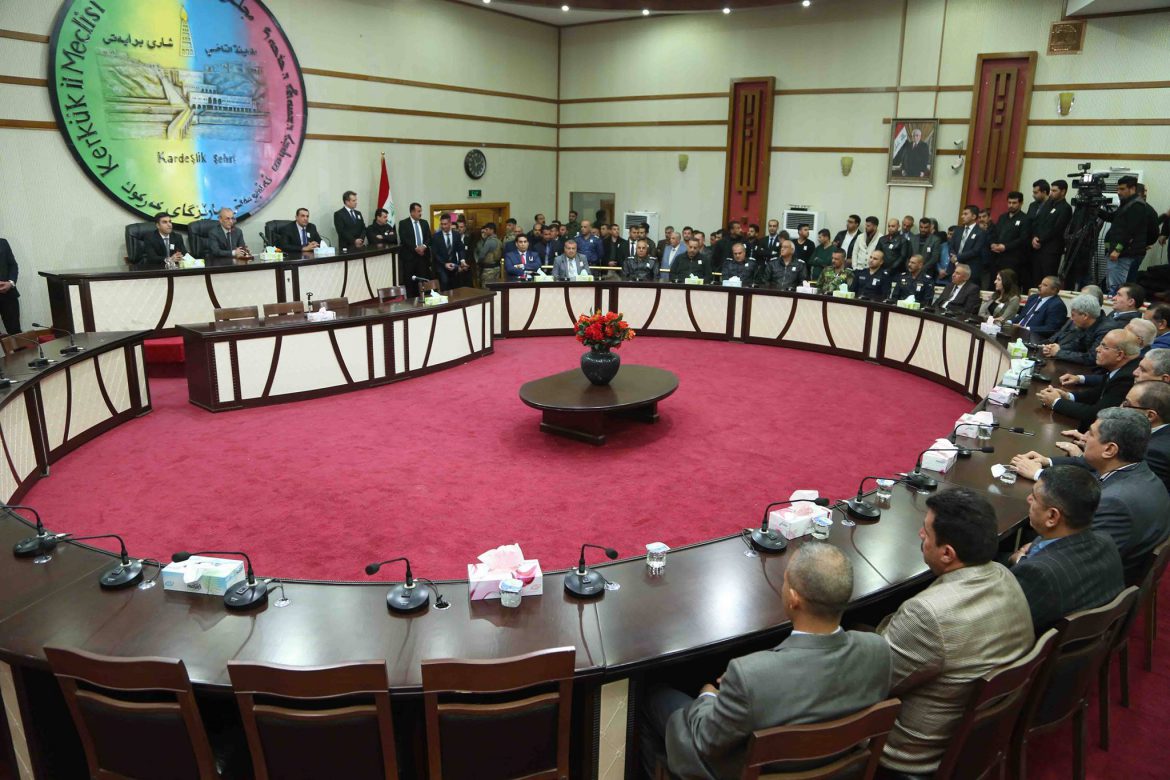A biweekly brief of events and news occurred in the disputed territories.
On December 18, provincial elections took place throughout Iraq, excluding the Kurdistan Region, resulting in an overall low turnout of 41%. The Independent High Electoral Commission (IHEC) reported that Kirkuk province had the highest turnout at 66%, followed by Saladin at 59%, while Maysan Governorate experienced the lowest turnout at 29%. According to IHEC, 566,265 voters participated out of 870,920 eligible voters in the province. Nationally, 22,116,368 people were eligible to vote in the 2021 parliamentary elections, but for the provincial council elections, this number was reduced to about 19 million. Notably, in Kirkuk alone, 122,000 voters were excluded from voting for not registering biometrics, despite two additional voting age cohorts being included since 2021.
The election results indicated that no single party or ethnic group secured the majority of 51% required to form the administration. Kurdish parties claimed seven seats, with five going to the Patriotic Union of Kurdistan (PUK) and two to the Democratic Party of Kurdistan (KDP), amassing a total of 247,167 votes. Sunni Arab parties secured six seats with a combined vote count of 205,943, while the Turkmen won two seats with a total of 72,664 votes. The quota seat designated for Christians went to the Iranian-backed Babelion, an ally of the PUK. Interestingly, the turnout for Kurdish voters was lower than their population share in Kirkuk, prompting some Kurdish officials to raise concerns about an “untransparent” process.



Kirkuk’s Shiite Turkmen and some of their Arab Shiite allies have issued threats to go on strike in front of the Independent High Electoral Commission (IHEC) after failing to secure any seats. On December 21, Mohammed Mahdi Bayati, the leader of the Iranian-backed Kirkukona coalition, instructed his supporters to “wait” for the announcement of a “sit-in” protest in front of the IHEC office in Kirkuk.
Post the release of election results, supporters of Sunni Arab parties celebrated in front of the governorate, displaying images of the former dictator and chanting, “We sacrifice our blood and soul for you, Saddam”—an old chant used by al-Ba’ath supporters before 2003. Concurrently, the celebrants assaulted a man for wearing Kurdish clothing. Subsequently, the police reported the arrest of the attackers. However, attacks on the Kurdish population have been on the rise since October 16, 2017, including fatalities among Kurdish protesters at the hands of the Iraqi army.
In accordance with election laws, the results do not serve as the “basis for any legal or administrative situation to determine the future of Kirkuk Governorate.” The election law emphasizes “fair representation to ensure the participation of the governorate’s components regardless of the election results.” The process of forming the administration remains unclear, but an understanding has emerged between Sunni Arabs and Turkmen, holding eight seats collectively. Additionally, the Christian quota seat winner, aligned with the PUK, and in conjunction with the KDP, also holds eight seats.
Turning to elections in Nineveh, Diyala, and Saladin, Kurdish parties struggled to secure more than one seat in Khanaqin, unlike previous elections where they claimed 3 to 4 seats. The PUK emerged as the sole winner in Khanaqin. In Saladin’s Tuz Khurmatu district, Kurdish parties secured a seat. In Nineveh, Kurdish parties won a total of six seats—four for the KDP and two for the PUK. However, the results indicated a loss of five seats, primarily from Shingal, where Iranian-backed politicians clinched the majority.

